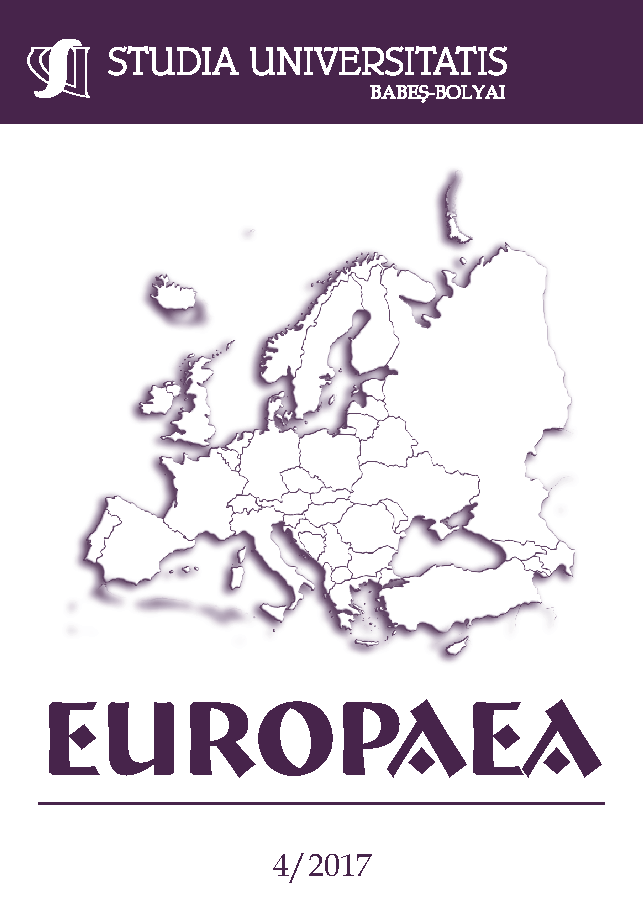IMPACT OF IRAN ON AZERBAIJAN: MEANS OF RELIGIOUS INFLUENCE
DOI:
https://doi.org/10.24193/subbeuropaea.2017.4.10Keywords:
Shia, Iran, Religion vs. Secularism, Constructivism, Soft PowerAbstract
Islam in Azerbaijan is a multifaceted phenomenon, which can be understood only in the context of a society in transition. Nowadays Islam plays only a very limited role in the political sphere and only a small part of the population supports the idea of establishing an ‘Islamic order’. This is due to the long tradition of secularism in Azerbaijan and to the fact that the strong nationalistic movement is secular in character and sometimes even fights together with the ruling elite against their rival, political Islam. In many regards, Azerbaijan stands as an original study-case foe an in-depth investigation on interaction between Sunnis and Shiites. The purpose of this research is to present some aspects of Islam – the Shia branch – within the former frontiers of the defunct Soviet Union, assuming that this issue is mainly defined by the borders of the Republic of Azerbaijan. In contrast to the opinion that Islam displays a more or less uniform character in all former Muslim Soviet republics, it is true to say that in these countries Islam was basically shaped by the specific circumstances of each republic, rather than by international Islamic movements and trends.References
*** (2012), Gallup Survey Frequency by Country, [http://news.gallup.com/poll/151595/Gallup-Survey-Frequency-Country-2012.aspx], 22 December 2017.
*** (2017), “Imam Khomeini’s Historic Letter to Gorbachev Resonates Globally” in Islam Times, [http://islamtimes.org/en/doc/article/596395/], 20 December 2017.
***, The Law of the Republic of Azerbaijan ‘On Freedom of Religious Belief’, Chapter 1, Article 1: [http://www.addk.net/eng/zakon_svoboda_e.html.], 2 January 2018.
Balci, Bayram; Goyushov, Altay (2012), “Changing Islam in Post-Soviet Azerbaijan and its Weighting on the Sunnite-Shiite Cleavage”, in Maréchal, Briggitte; Zenmi, Sami (eds.), The Dynamics of Sunni-Shia Relationships, London: Hurst&Company.
Cornell, Svante E. (2006), “The Politicization of Islam in Azerbaijan”, in Silk Road Paper, [https://www.silkroadstudies.org/resources/pdf/SilkRoadPapers/2006_10_SRP_Cornell_Islam-Azerbaijan.pdf], 22 December 2017.
Cornell, Vincent J. (Ed.) (2007), Voices of Islam (Volume 1- Voices of Tradition), Connecticut: Praeger.
Cutler, Robert M. (2013), “Facing Growing Iranian Threats, Azerbaijan Deepens Ties To Israel”, in The Central Asia-Caucasus Analyst, [http://www.cacianalyst.org/publications/analytical-articles/item/12730-facing-growing-iranian-ties-azerbaijan-deepens-ties-to-israel.html], 21 December 2017.
Ismaylov, Elnur (2015), Islam in Azerbaijan. Revival and political involvement, in Agadjanian, Alexander; Jödicke, Ansgar; van der Zweerde, Evert (Eds.), Religion, Nation and Democracy in the South Caucasus, New York: Routledge.
Isopescul, Octavian (2006), Coranul (translation), Chisinau: Cartier.
Kotecha, Helma (2006), “Islamic and Ethnic Identities in Azerbaijan: Emerging Trends and Tension”, [https://esiweb.org/pdf/azerbaijan_osce-islamic_and_ethnic_identities_in_azerbaijan_Jul2006_23087_en.pdf], 28 November 2017.
Kushen, Robert (1991), “Conflict in the Soviet Union. Black January in Azerbaidzhan”, New York: Humans Rights Watch.
Lorentz, John H. (2010), The A to Z of Iran, Toronto: The Scarecrow Press, Inc.
Motika, Raoul (2001), “Islam in Post-Soviet Azerbaijan” in Archives de sciences sociales des religions, No. 115, Jul. – Sep., 111-124.
Motika, Raoul (2000), “Foreign Missionaries, Homemade Dissidents and Popular Islam: The Search for New Religious Structures in Azerbaijan”, in Brunner, Rainer; Ende, Werner (eds.), The Twelver Shia in Modern Times, Boston: Brill.
Nazarov, Islam (2017), “Relations Between Iran and Azerbaijan Today and in the Nearest Future”, in CA&CC Press (Publishing House Sweden), [http://www.ca-c.org/journal/2002/journal_eng/cac-05/10.nazeng.shtml], 21 December 2017.
Nye, Joseph S., Jr. (2004), Soft Power. The Mean to Success in World Politics, New York: Perseus Books Group.
Sandal, Nukhet A.; Fox, Jonathan (2013), Religion in International Relations Theory. Interaction and possibilities, London and New York: Routledge.
Snyder, Jack (Ed.) (2011), Religion and International Relations Theory, New York: Columbia University Press.
Souleimanov, Emil; Ditrych, Ondrej (2007), “Iran and Azerbaijan: A Conteseted Neighborhood”, in Middle East Policy, Volume 14, Issue 2, [http://onlinelibrary.wiley.com/doi/10.1111/j.1475-4967.2007.00300.x/full], 2 January 2018.
Toft, Monica Duffy; Philpott, Daniel; Shah, Timothy Samuel (2011), “God’s Century. Resurgent Religion and Global Politics”, New York: W. W. Norton & Company, Inc.
Rakel, Eva (2003), “Paradigms of Iranian Policy in Central Eurasia and Beyond”, in Perspective on Global Development and Technology, Volume 2, Issue 3, [http://booksandjournals.brillonline.com/content/journals/10.1163/156915003322986398], 2 January 2018.
Valiyev, Anar (2018), “Iranian soft power in Azerbaijan: does religion matter?”, in Jödicke, Ansgar (Ed.), Religion and Soft Power in the South Caucasus, New York: Routledge.
Wendt, Alexander (1999), Social Theory of International Politics, Cambridge: Cambridge University Press.
Downloads
Published
How to Cite
Issue
Section
License
Copyright (c) 2017 Studia Universitatis Babeș-Bolyai Europaea

This work is licensed under a Creative Commons Attribution-NonCommercial-NoDerivatives 4.0 International License.






